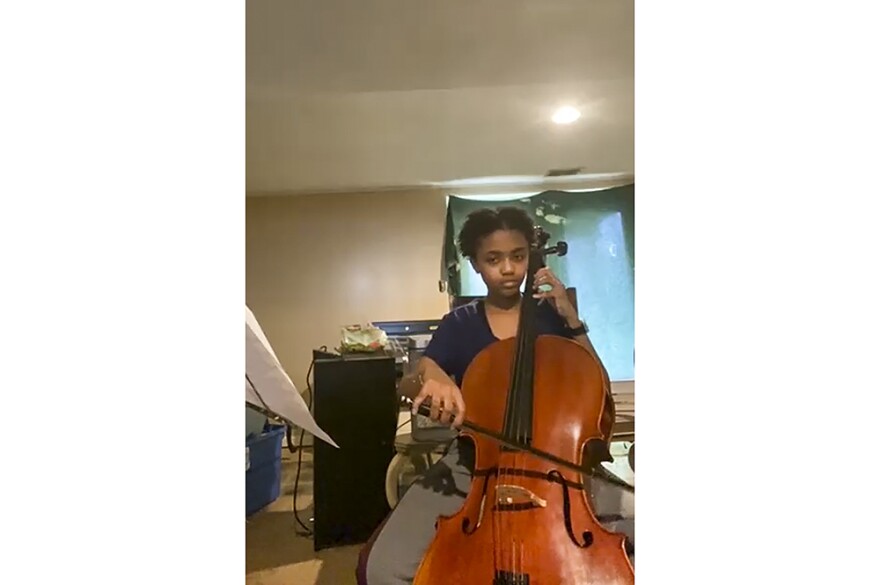For countless students around the Kansas City metro, last month's school closures did not put an end to their music lessons.
Instead, their teachers scrambled to stay connected during the coronavirus lockdown. In the process, some of them are making surprising discoveries.
“Curiously, you know, the younger the student is, I’ve found, the more adept they are at learning off of a screen and, in some ways, I’m already getting sense that my youngest students might even be learning faster,” says pianist Charles Dickenson, who teaches 25 students of all ages and performs around town with ensembles like newEar.
Initially he was reluctant to take his classes online. There were just too many compromises.
"Audio quality is never going to be quite as good," says Dickenson. Also, "when you’re teaching piano it’s very helpful to be able to see the keyboard at different angles. But if you only have one camera or one tablet or a phone or whatever, you’re using then you only have that one fixed position and that can be hard both as a student and as a teacher.”

Zoom classes have definitely not been a perfect solution for Eman Chalshotori, the principal cellist of the Topeka Symphony Orchestra, who teaches cello to students in metro-area public schools.
He’s one of 15 teachers in UMKC’s Musical Bridges, a program that helps fund private lessons for some 60 music students in the area school districts.
“There’s a whole process," explains Chalshotori. "They have to apply and audition, maintain a certain GPA. But they’re all really brilliant kids with really good talent that just might not be able to afford, you know, consistent lessons. It can be pricey.”
Chalshotori used to meet 17-year-old Janell Jones for her weekly lesson at Ruskin High School. But those days now feel like a whole different time.
Chalshotori says Jones is making good progress.
But the wifi signal is often sporadic, which can be disruptive.

And without the structure of school, some of his students are finding it hard to get motivated.
“I have one student where we’re trying to get her to just put on some shoes and, like, not pajamas," he says. "I’m like, ‘Ok, like, have you thought about maybe ... I don’t know, practicing a little bit?”
For one area violin teacher, going online has provided insights.

“We’re modifying the way we teach a little bit," says Laurel Morgan Parks. "So I think, the challenge is, you know, it’s kind of fun.”
You could almost say Parks is a veteran of online instruction. Her business, Drunken Fiddles, grew out of the instruction videos she offers to adults who are beginning violin students.
“There was a learning curve," says Parks. "There were things going on with the sound, and the light was weird and the room wasn’t right.”
Determined to get it right, Parks invested in microphones and lights to bring up the production value. She also uses two cameras: one wide, the other closeup.
“Since I am charging a monthly fee for the videos I wanted to make sure they were as professional as I could,” Parks says.

Last year, Parks pitched the idea for online lessons to "Shark Tank," the TV show that gives start-ups a chance to pitch their ideas to potential investors.
Back in February, she found out she was accepted to a casting call; she’s still waiting to hear whether she’ll be on the show. Meanwhile, DrunkenFiddles.com launched in early April. Parks says she already has students signed up for classes.
For Parks, learning these skills are good for everyone.
“For musicians who are now teaching online when things go back to normal — quote-unquote normal — they will have that additional option," she says.
"They’ll be familiar with how to use Zoom or Facetime or whatever platform for teaching.”










